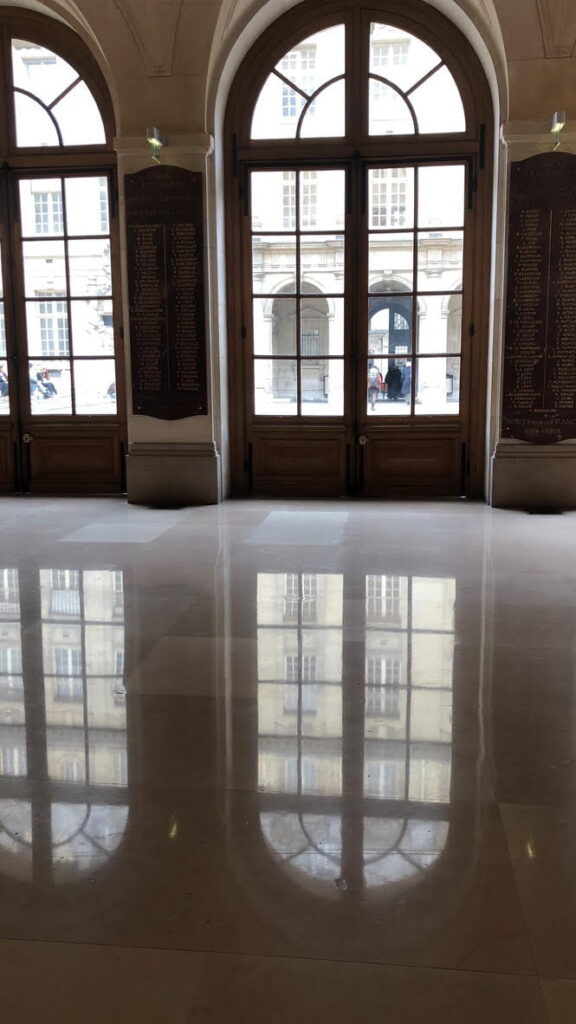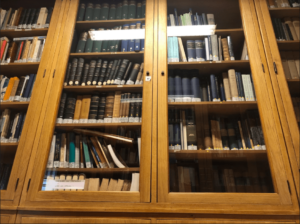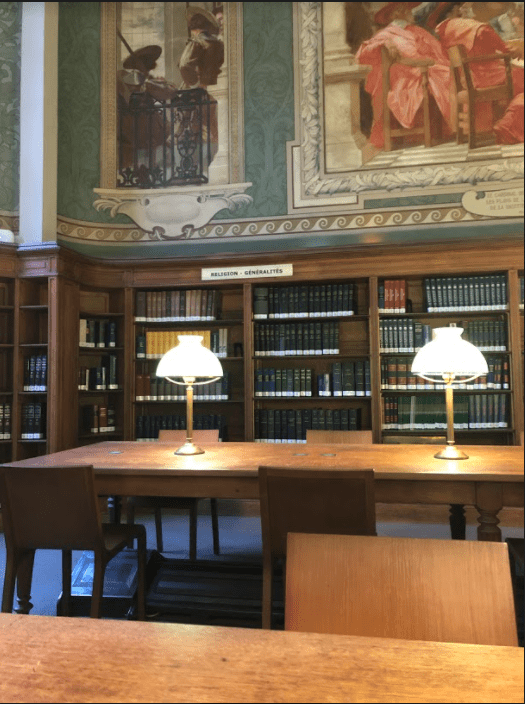
After being at Sorbonne for more than one semester, there are still things that I learn about the school every day. When I first came to the school, it was super confusing. I did not truly understand what the “homework” was and the French way of writing a paper is not what I am used to. Going abroad is so wonderful because you get to see another part of the world and get to learn new things, but at the same time adapting to a whole new way of learning is really hard. I am usually the student in class that responds a lot to professor’s questions, and I have this eagerness to learn. However at the Sorbonne I am super silent because I am so scared to respond in French in front of other students. I have tried to speak before in class and I have had a professor tell me “Je ne comprends pas” (meaning “I don’t understand”) and then I am like well now what do I do.

The professors are really nice to me as an abroad student but being in this setting can be scary as the teaching style is so different. Most of my courses do not have PowerPoints and the professor reads off a script about the information and the students type to text what is said. As someone who writes their notes, I cannot write down every word, and because the class is in French, sometimes I just try to write down whatever I can hear or understand. After going through all the struggles of adapting to the school after first semester, second semester I have the routine of the school a little better. I wanted to make a guide to the school for future abroad students so that they don’t feel lost on their first day:
- Go to Sorbonne and find every classroom for registered classes: the building is a maze and you don’t want to be late to class. I thought I knew where a classroom was and then I was wrong. I had to frantically ask a group of professors where the classrooms were (which was up a specific set of stairs and through a secret maze). I was late to class and I awkwardly walked into the room while the professor was explaining the outline of the class.
- Talk to your professors on DAY 1 about being a study abroad student. They will be so much nicer to you and offer you help (kind of). Also write that you are a study abroad student at the top of all of your papers so they KNOW when you make grammar errors that you are still learning.
- They will offer to go slower in class or tell you to raise your hand if you want more clarity. I am too scared to do that and raise my hand, so INSTEAD when taking notes, write down everything you hear. It does not matter if you get the full concept that they are talking about, or the full sentences, but it is important to write down what you do hear. It will increase listening comprehension and it will help you study later for the exam!
- Hand write your notes instead of type! So if you hear an important name but don’t really know you can write a question mark above it and come back, as well having a lot of red squiggly lines as a speller error in Word is super annoying
- If there is an Oral Presentation in the class but there are too many students to present, ask if you can write the presentation and turn in a paper!
- If you do have to do an oral presentation, have no fear! It is scary to present in front of a lot of people but they understand that you are an exchange student.
- On Day 1 when the professor hands out the packets for the class in the TD: choose the date or subject you want to present about, write it down, and when the Professor calls the topic, RASIE YOUR HAND, so then you aren’t stuck with the leftover choices since you didn’t know what was going on (you could get stuck with the first one to present or the last one to present if not). I usually space the presentations out based on when the exams are for the class just so I am not stressing if I have 1000 assignments in one week
- If you are lost and don’t understand material in a class, choose a book from the “Manuals” list. Go buy it at Gibert Joseph or at FNAC and read it as supplementary material to gain clarity on a topic
- The books in the professor’s bibliography are basically pre-approved books you can check out from the library for your research projects/papers (and are a good place to start if you want to read more about a topic). Check out at least 3-4 for a “commentaire du texte”.

- GET A LIBRARY CARD: First off, the library at the Sorbonne is beautiful, minus the fact that sometimes the line to get into the library is super long and then it is impossible to find a seat… BUT this is the holy grail of a place to check out a book. Go online with your login and you can search for a book. You can check it out and then when it is “ready” you go to the desk to pick the book up, with your library card. It is super easy! If you are confused about how to check out a book, just ask someone at one of the desks! (I, very embarrassingly, frantically asked a man who worked there how I could check out a book because I was an exchange student, and he was so nice.)
The golden rule is don’t be afraid to ask for help. Everything can be overwhelming at first, but once you get used to it, it is a breeze!

